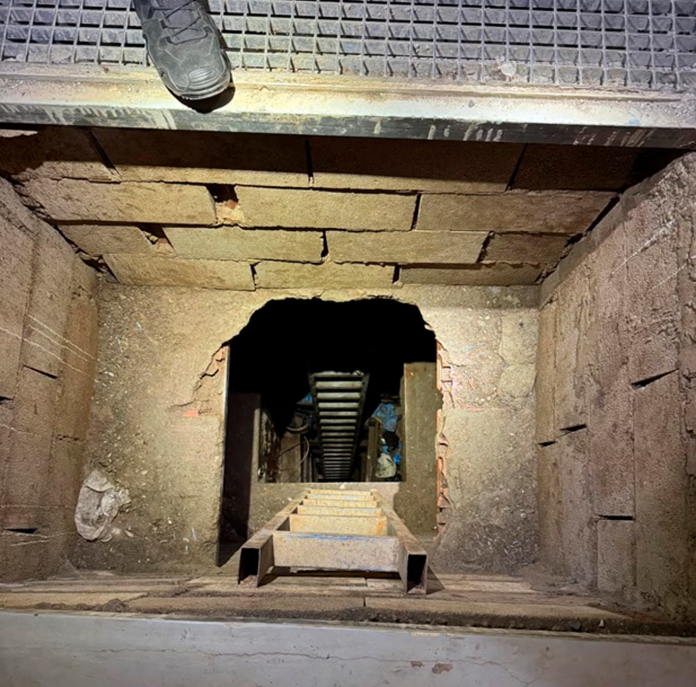Spanish authorities announced the discovery of a sophisticated drug-smuggling tunnel linking Morocco with the Spanish enclave of Ceuta in North Africa, AP News reported.
The tunnel, uncovered during an operation targeting hashish trafficking, was equipped with basic lighting and measured 12 meters (39 feet) deep. The passageway, found in a warehouse in an industrial area of Ceuta, stretched 50 meters on the Spanish side, according to El País.
The entrance to the tunnel was concealed beneath a trapdoor in a former marble factory that had closed in 2020. The trapdoor led to a stairway descending into the tunnel, highlighting the elaborate nature of the operation.
The Civil Guard, Spain’s national police force, stated that the narrow tunnel “could have been used to transport drugs across the border between Morocco and Spain.” While no arrests have been made in connection with the tunnel and no drugs were found at the site, the discovery underscores the ongoing challenges of drug trafficking in the region.
In recent weeks, Spanish authorities have detained several individuals, including two Civil Guard officers, as part of a broader crackdown on drug smuggling. During these operations, police seized more than 6,000 kilograms (6.6 tons) of hashish hidden in trucks.
Ceuta and Melilla, two small Spanish enclaves in North Africa, represent Europe’s only land border with Africa. The territories have long been focal points for drug trafficking and irregular migration due to their strategic location. Earlier this year, Spain and Morocco opened customs facilities in Ceuta and Melilla to facilitate the legal transfer of goods between the two countries, aiming to strengthen economic ties and curb illegal activities.
